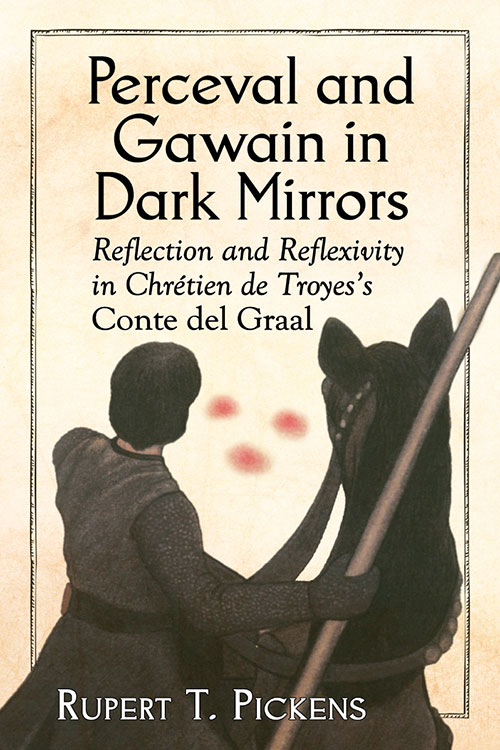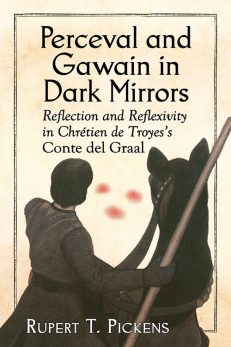Subtotal: $23.99
Perceval and Gawain in Dark Mirrors
Reflection and Reflexivity in Chrétien de Troyes’s Conte del Graal
$29.95
In stock
About the Book
An innovative author of verse romance, Chrétien de Troyes wrote in northern France between 1170 and 1190. Credited with the first Arthurian romance, he composed five works set in King Arthur’s court, culminating with an unfinished masterpiece, the Conte del Graal (Story of the Grail). This text is the first to mention the banquet serving dish that became the Holy Grail in early efforts to rewrite or complete the text. This book focuses on the Conte’s narrative depiction of mirrors real and metaphorical: shining armor, a polished golden eagle, the Grail itself, St. Paul’s enigmatic looking glass, the blood drops in snow in which Perceval sees the face of his beloved. The last chapter joins the controversy over Chrétien’s intended conclusion, and proposes a climactic ending in which Perceval, heir to the Grail kingdom, confronts his double, Gawain, heir to Arthur’s Logres.
About the Author(s)
Bibliographic Details
Rupert T. Pickens
Format: softcover (6 x 9)
Pages: 216
Bibliographic Info: 10 illustrations, appendices, notes, bibliography, index
Copyright Date: 2014
pISBN: 978-0-7864-9438-5
eISBN: 978-1-4766-1859-3
Imprint: McFarland
Table of Contents
Preface: Chrétien de Troyes’s Conte del Graal 1
Introduction. The Prologue: “Through a glass, darkly” 11
1. Specularity and Reflective Sequences 17
2. The Hermitage: “He that abideth in charity” 55
3. Gawain in the Galloway Borderland 85
4. Apotheosis and Relapse 104
Conclusion: “Hide your good deeds from your left hand” 133
Appendices
A. The Peccatum matris as Original Sin: Psalm 108/109:14 153
B. The Peccatum matris as an Incentive to Charity: Foregrounding the Mother in the Vulgate Sirach 155
C. The Custom of Logres in the Charrete 158
Chapter Notes 161
Bibliography 185
Index 195
Book Reviews & Awards
- “Meticulously researched and persuasively defended study, one that is indispensable for lovers of Chretien and of benefit to all those interested in the Middle Ages. This is a handsome volume”—Speculum

 U.S. Colored Troops Defeat Confederate Cavalry
U.S. Colored Troops Defeat Confederate Cavalry 




